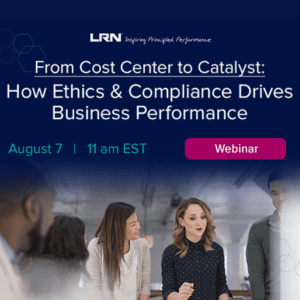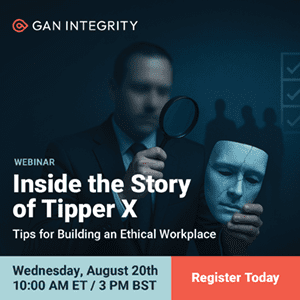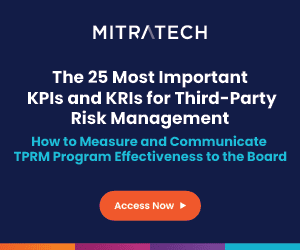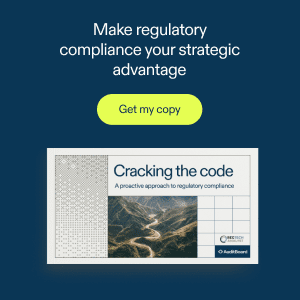The cracks are already showing. A U.S. District Court in Texas, less than a week after the Supreme Court issued its Loper Bright decision, cited the ruling in partially striking down the FTC’s controversial ban on noncompete agreements in employment. Few reasonable people would expect this to be the last time a court cites the panel’s paradigm-shifting Loper Bright decision or its less talked about but perhaps as consequential cousin, Corner Post, in an opinion that invalidates a regulation issuing from an executive agency. Indeed, many in the legal community told CCI’s Jennifer L. Gaskin that compliance professionals should settle in for a period of uncertainty — and elevated, volatile business risk.
On consecutive business days in June and July, the Supreme Court’s conservative majority flicked the first in a set of dominos that promises to upend corporate compliance for years, touching nearly every business in the U.S. and kneecapping regulatory agencies’ long-standing legal advantages.
By a 6-3 majority, the seismic Loper Bright ruling on June 28 overturned so-called Chevron deference, which gave executive agency interpretations of federal statutes the benefit of the doubt in lawsuits over agency-issued rules. Then on July 1, just one business day later, the same 6-3 majority in Corner Post agreed that the six-year window for businesses to file lawsuits challenging regulations starts not when the rule is adopted but when the regulation first affects the company.
Earlier decisions in this term also struck down the SEC’s use of administrative courts in securities fraud cases (SEC v Jarkesy) and paused the EPA’s “good neighbor” rule on pollution that crosses state borders and questioned how the agency responded to public comments (Ohio v EPA).
The conclusion is clear: Federal agency power is not what it used to be, said Rob Palumbos, a partner at law firm Duane Morris, who indicated that many in the legal community suspect more dominos will fall.
“It was a consistent theme this term of pulling back on agency power and deference to agencies that had built up over decades,” Palumbos said. “I think if you put those four decisions together … you’re just left with so many questions about where this is going. I think lawyers have suspicions about where it could be going, but it’s really right now extremely uncertain, and it’s left everybody kind of scratching their head, and we’re just going to have to feel our way through by trial and error.”
“Be careful what you wish for.”
Todd H. Baker, Columbia Law School lecturer on the long-term implications of the Supreme Court overturning the Chevron doctrine
Mostly, analysts expect compliance, risk and governance professionals to see the effects of these rulings most acutely over the long term, though that’s not to say some short-term changes are out of the question, said Holland & Knight partner Andy Emerson.
“Fundamentally, you’re still going to be implementing the same compliance program today as you would, but what you need to be thinking about is what does your budget for compliance programming look like next year?” Emerson said. “How do you evaluate where you might want to see a change? And as you’re thinking through it, use that time to evaluate what might be changing in the regulatory environment.”
Similarly, Danielle Desaulniers Stempel, a senior associate at law firm Hogan Lovells, says she and her colleagues have spent the past couple of weeks advising their clients to take a measured approach.
“Don’t panic. Just because you had a rule that you liked doesn’t mean it’s going away immediately,” Stempel said. “I do think there’s just been a lot of very reactionary messaging coming. And so taking a step back, taking a breath, I think, has been important for the C-suite folks in particular to hear.”
Still, those long-term implications could be vast — and costly.
“For companies that make substantial investments to comply with regulatory requirements [the Loper Bright and Corner Post rulings have] the potential to create unequal playing fields,” attorneys John Peiserich and Kim Logue wrote for J.S. Held’s blog. “Imagine a new competitor in your industry successfully appealing a long-standing Clean Air Act requirement, one that you invested hundreds of millions of dollars in for scrubbers to comply with, only to learn the competitor does not have to meet the same requirement.”
An uncertain future
Courts have wasted little time in taking the Loper Bright ruling into account, as the U.S. District Court for the Northern District of Texas did in partially striking down the FTC’s noncompete ban this month. While Loper Bright was not the primary foundation for the court’s preliminary injunction, the Loper Bright mention appears to be a strong signal that the FTC’s ban will not survive. The agency’s rule is set to go into effect Sept. 4; with a final court decision expected by the end of August, that could leave compliance teams just a few days to cement their plans.
Indeed, the clearest immediate impact is unpredictability, wrote Todd H. Baker, a lecturer at Columbia Law School, who views the resulting uncertainty as a massive business risk.
“In many respects, knowing what the rules are is more important for successful business planning than the content of any particular rule,” Baker wrote on the law school’s CLS Blue Sky blog. “Businesses need to think ahead and make decisions based on reliable assessments of the likely future legal and regulatory environment in which they will compete. Strategic and operating plans need to be put into place with financial support and management incentives designed to support desired outcomes. Businesses rely on, and benefit from, predictability. Prolonged uncertainty is the worst, potentially a business killer in a fast-changing world.”
In as many words, Baker warns: “Be careful what you wish for.”
The outcomes of regulations are likely to take years to sort themselves out as challenges to regulatory actions work their way through an already taxed court system before they become final (or before regulators abandon their efforts). But nobody has a crystal ball; we can’t know for sure what will happen, whether in the short term or the long term.
And the end result could be even more complex than the current regulatory picture in some cases, said Alex MacDonald of Littler’s Workplace Policy Institute.
“It may be that less regulation means less compliance burden means an easier job for employers,” MacDonald said, “but it might also mean more uncertainty, and I say more uncertainty for this reason: If courts are the ones who are elaborating all these rules now instead of agencies, you could have a balkanization of the law.
“If you have a multistate employer that’s trying to figure out its compliance obligations, in some ways it might be easier on the old standard, where we said, look, the Department of Labor wrote this regulation, we can be confident that this regulation is going to get deference in court.”
Instead, experts say, different courts will issue different rulings that apply to different parties, and single, nationwide standards may be more difficult to establish, particularly in areas where states have issued their own rules. If, for example, the FTC’s noncompete ban does not survive the court process, that won’t mean a free-for-all throughout the country.
“Many states have been very active in regulating noncompetes in recent years,” MacDonald said. “DC and Washington and a few other states have recently passed rules that restrict noncompetes for low-income employees. And if the federal rule gets knocked out in those areas, the fallback is not nothing. The fallback is the state rule, so you still would have to look at state law and decide, ‘OK, what’s my compliance obligation here?’”
Legal balance
The court’s Loper Bright and Corner Post rulings give challengers to agency rules easier paths, potentially setting up a fairer fight. If the chances of getting a rule knocked back a year ago were 80/20, it may be closer to 50/50 now. And that changes the calculus for companies, whether they’re considering mounting or joining a lawsuit, weighing whether to comply with a newly issued or newly challenged rule or seeking to influence future rulemaking.
They may end up taking more chances, figuring that their odds are better now, Emerson said.
“Maybe you look at your own team and say, ‘What are the things where we might be able to influence a change, either in new statutes, reevaluation or engaging with others in the industry that would limit our overall compliance burden,’” Emerson said. “Because at some point there was a risk assessment done where you said, ‘The agency is saying X. We’re not sure that’s entirely right, but the risk of challenging it’s going to be expensive and the probability [of winning] is low.’ Today, that challenge is probably the same price, but the probability [that you win] is materially higher than it was before … and you should probably think about that and reevaluate.”
Of course, lawsuits work in more than one direction. Businesses that favor regulation in certain areas could become interveners, joining lawsuits to defend a rule that benefits them, Stempel said.
“There’s only one right interpretation, so once the question is decided, it’s decided,” Stempel said. “Under Chevron, the agency could have changed its mind, and as long as both options were reasonable, the new interpretation would stand. But there’s a real risk of an agency not defending a rule, and so you, as a regulated party who benefits from it, need to be prepared to step into those shoes.”
And regulatory agencies themselves may turn to the court system, sidestepping the rulemaking process with strategic litigation, MacDonald said. For example, the Department of Labor, tired of getting sued in the Fifth Circuit, a panel that’s not been friendly to the agency, files lawsuits against employers in, say, the Ninth Circuit, where it’s more likely to find sympathetic judges.
“[The department could] take a position in litigation that the statute means X. And if a court agrees with us, we don’t need to worry about deference. Right now, we have a judicial decision that says the statute means X, we don’t need a rule,” MacDonald said. “Now we’ve got precedent; we’ve got a court agreeing with us, so we didn’t have to go through the yearslong process. We were able to take a friendly court, pick a weak defendant, set up our case and then establish, as a matter of judicial precedent, that the statute means what we want it to mean.”
Watch this space
Importantly, the Loper Bright ruling does not mean regulatory agencies have lost all authority or even all deference. While the Chevron doctrine no longer applies, agency interpretations will still hold weight. Skidmore deference, for example, while less binding than Chevron, asks courts to consider an agency’s consistency in interpreting the law it administers, including formal rulemaking and informal guidance.
“The agency’s remaining ‘power to persuade’ (Skidmore deference) will be critical,” said Melody Morehouse, director of conversation compliance at Gryphon.ai, a call center compliance provider. “While the extent to which one agency might receive the benefit of the doubt over another is unknown, factors such as a strong track record of well-reasoned regulations, especially those with alignment of statutory interpretation with congressional intent, could possibly come into play.”
Agencies may increase their use of such sub-regulatory guidance, MacDonald said, to avoid lengthy court battles over formally issued rules — and smart compliance officers will continue to heed that guidance.
“[Say] I’m a compliance officer. I’m just sitting in an employer, trying to figure out what to do,” MacDonald said. “I’m going to look at what the Department of Labor says on its website, and even if it’s not binding, I may follow that just because I don’t want to end up on the wrong side of an audit, I don’t want to end up on the wrong side of a lawsuit. Agencies can influence private behavior even without going through this formal rulemaking process where they could be challenged.”
For compliance professionals, their first move into this new future is understanding where their regulatory pain points lie, said Holland & Knight partner Kwamina Williford, by conducting an internal assessment. The next step, though, depends on their risk appetite, she says, and which regulations they may bump up against.
“Perhaps you’re making a change, but that is something where it’s going to be assessing what your risk tolerance is going to be, talking internally to legal and probably counsel about what the chances are for that rule to be deemed appropriate or not by the court,” Williford said.
Josh Odintz, a tax attorney at Holland & Knight, expects the fuzzy details to sharpen over the next several years, perhaps with future rulings from the Supreme Court.
“The question is does the court provide some contours that add to Skidmore deference in the future, so I don’t think we’ve seen the end of this issue before the court.”
As a tax attorney, Odintz is accustomed to lengthy processes.
“One of my good friends, a tax controversy lawyer, said, ‘Tax controversy is like being an archaeologist; you have to wait several years and then you start digging through the rubble to find out what happened,’ Odintz said. “And that’s really also true with these types of claims.”
But a period of stability is probably too much to hope for, Palumbos said, as courts are asked to rule on one regulation after another to establish whether rules are within the bounds of statutes. And the potential exists for the anti-agency rulings this term to have spill-over effects, he said.
“There’s language in [Jarkesy] that really emphasizes that securities fraud claims are based on common-law fraud, which are subject to the 7th Amendment, [which guarantees the right to a jury trial],” Palumbos said. “And so, the suspicion is, well, that reasoning is likely to apply beyond just the fraud context. How broadly it applies is just unclear. Would it also apply to antitrust claims that are brought before the FTC? Would it apply to certain types of EPA actions? The suspicion is it will certainly apply more broadly than its terms. But it’s just opaque at this point as to how broadly that is.”



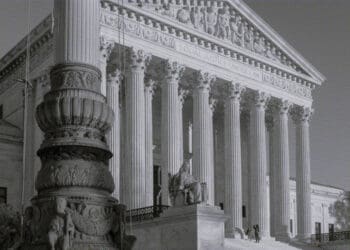
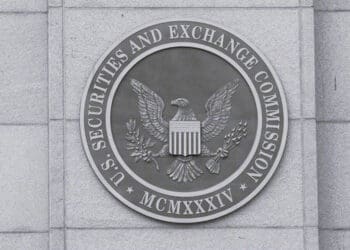
 Jennifer L. Gaskin is editorial director of Corporate Compliance Insights. A newsroom-forged journalist, she began her career in community newspapers. Her first assignment was covering a county council meeting where the main agenda item was whether the clerk's office needed a new printer (it did). Starting with her early days at small local papers, Jennifer has worked as a reporter, photographer, copy editor, page designer, manager and more. She joined the staff of Corporate Compliance Insights in 2021.
Jennifer L. Gaskin is editorial director of Corporate Compliance Insights. A newsroom-forged journalist, she began her career in community newspapers. Her first assignment was covering a county council meeting where the main agenda item was whether the clerk's office needed a new printer (it did). Starting with her early days at small local papers, Jennifer has worked as a reporter, photographer, copy editor, page designer, manager and more. She joined the staff of Corporate Compliance Insights in 2021. 




